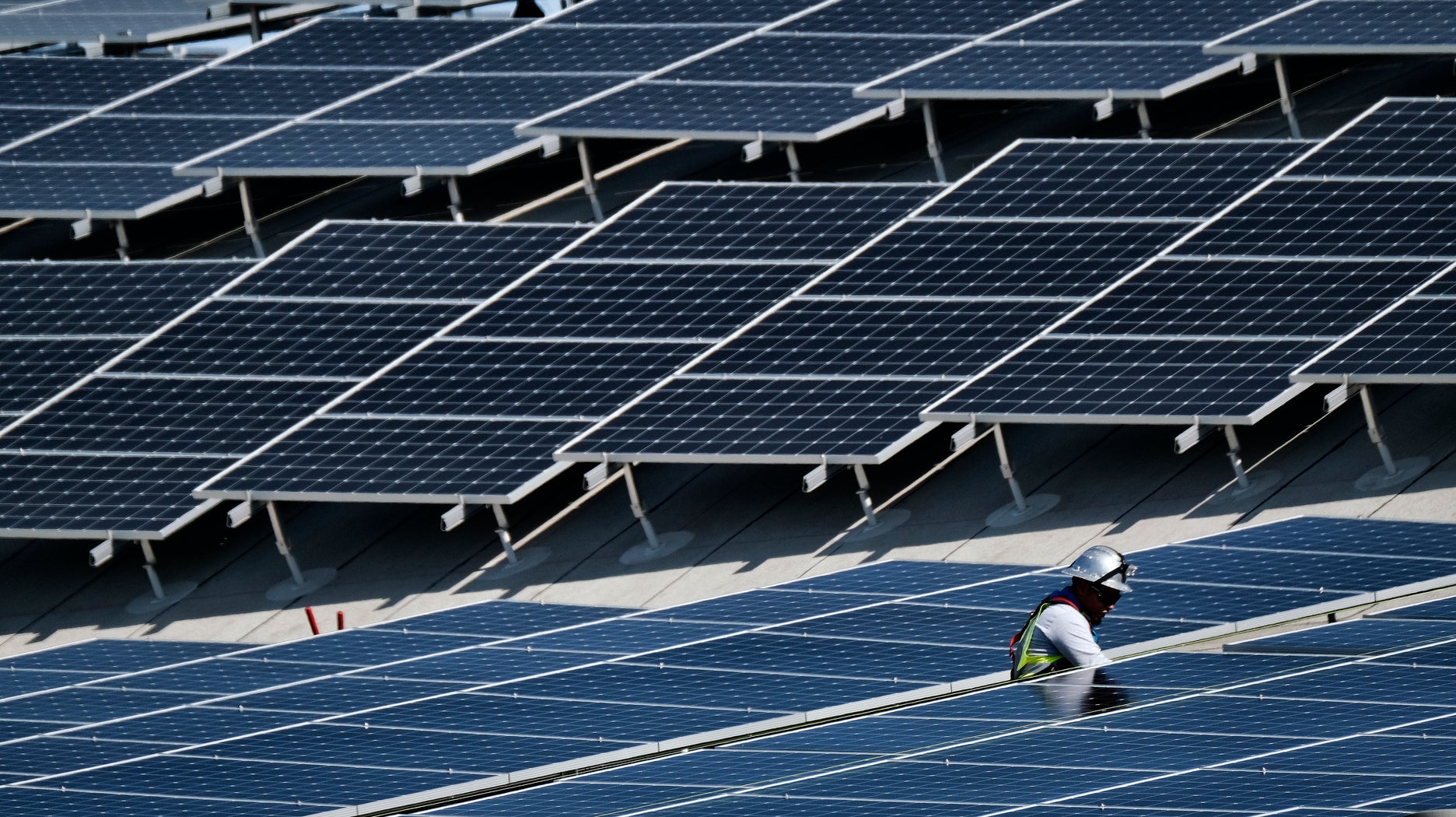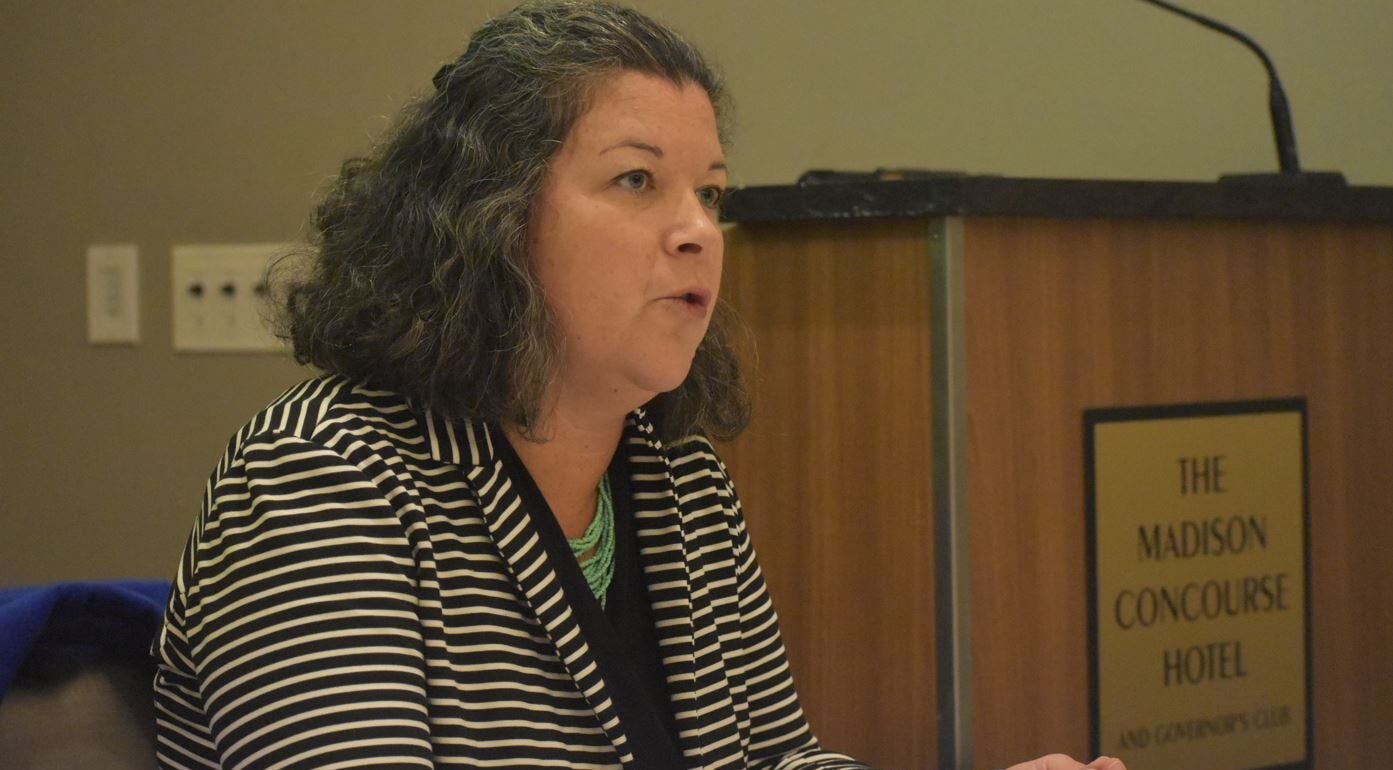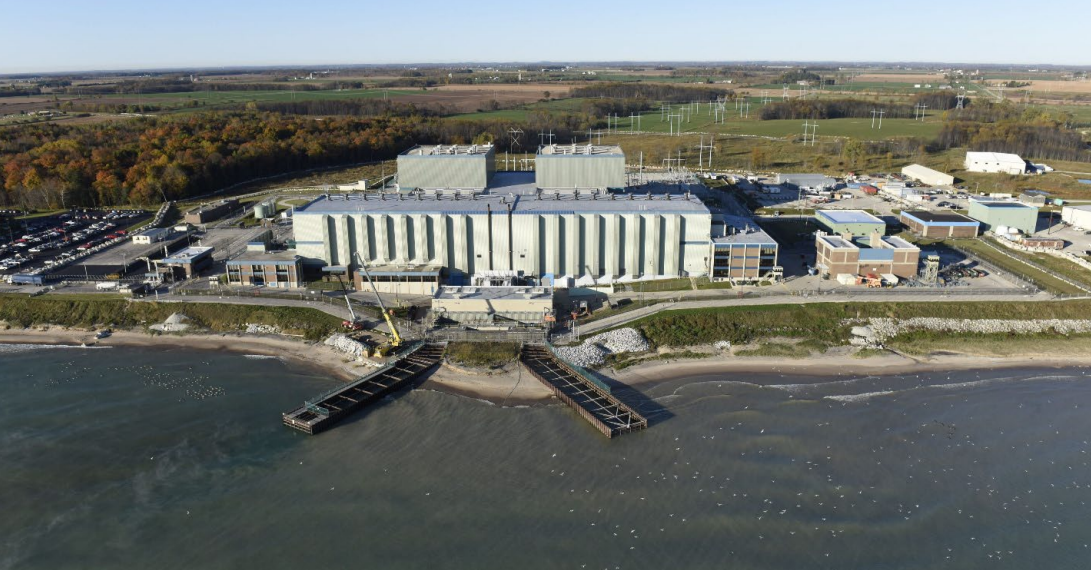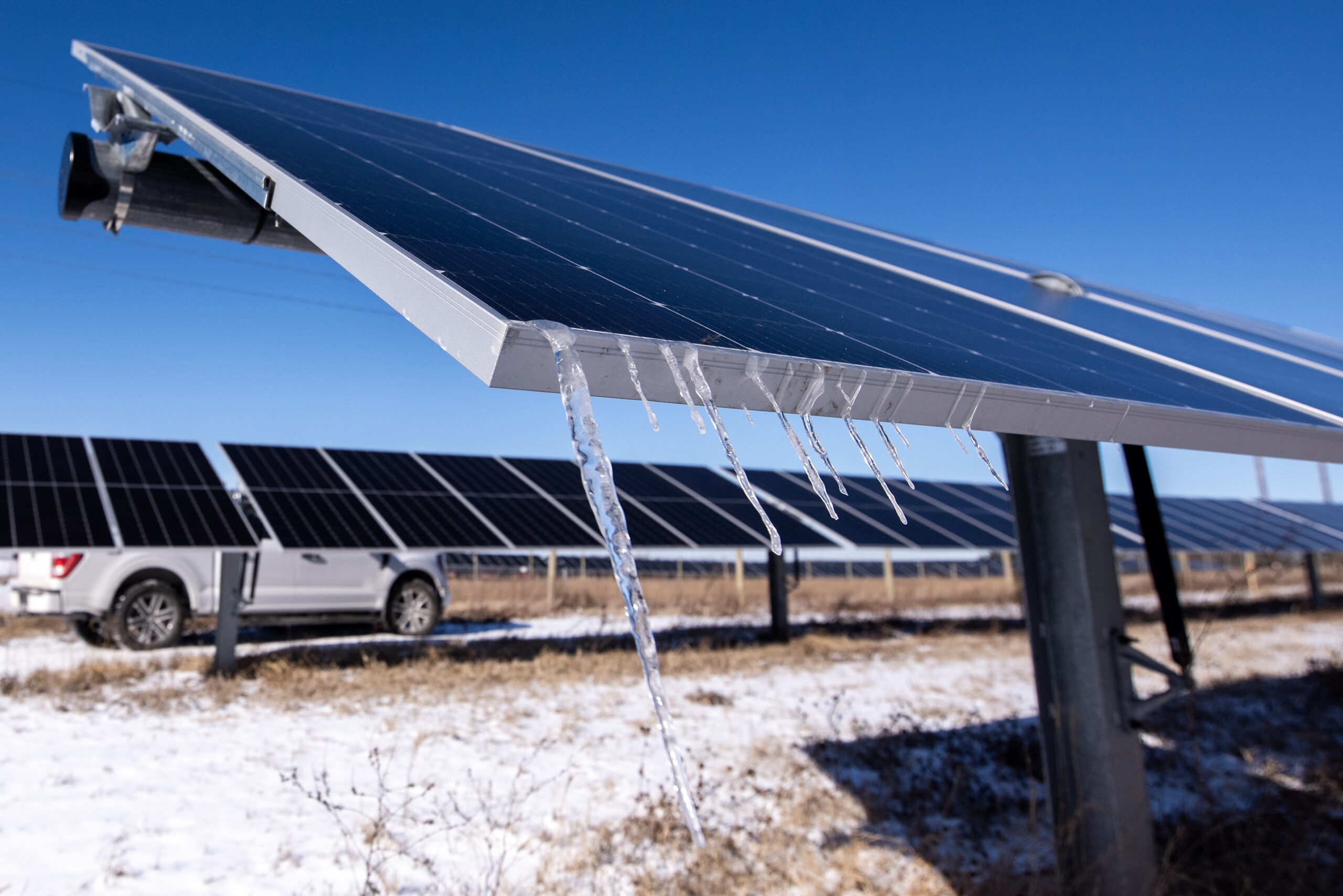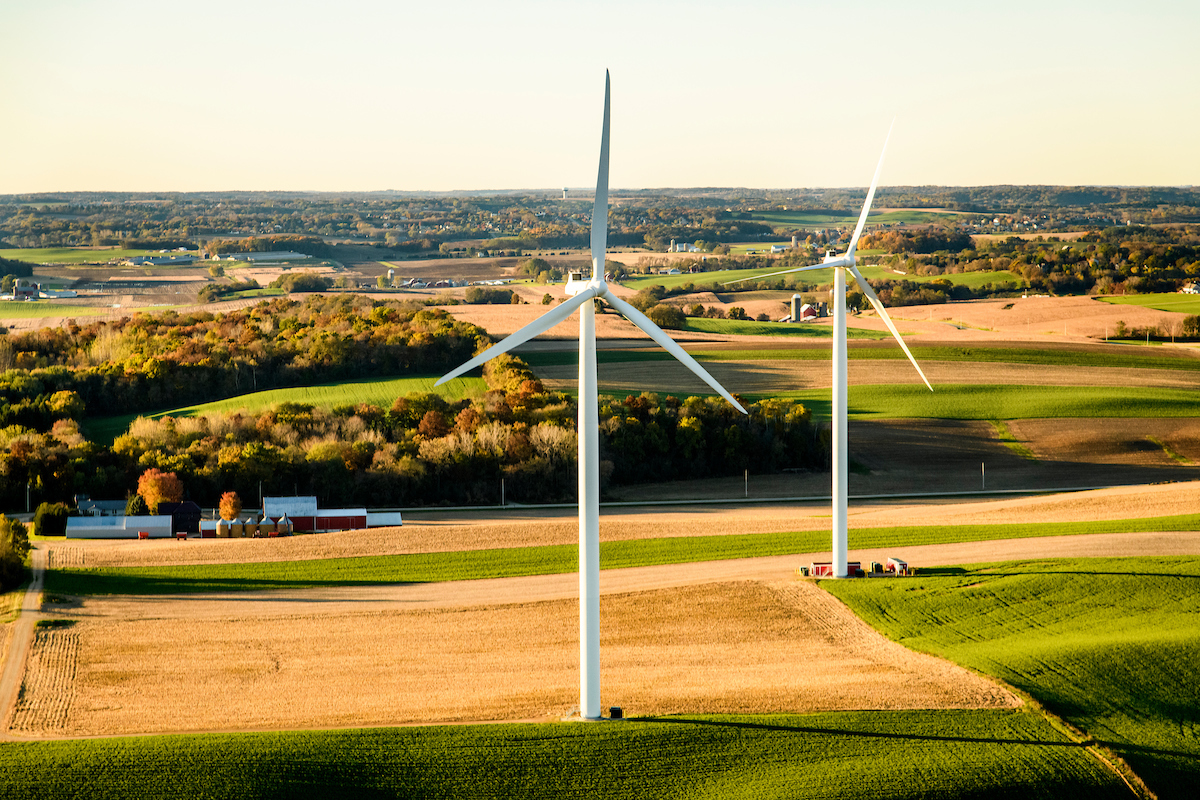Gov. Tony Evers wants Wisconsin to be carbon-neutral by 2050, and state policymakers offered up some ideas on how to get closer to that goal at a panel Thursday morning.
The environmental nonprofit RENEW Wisconsin gathered a bipartisan panel of state legislators and the state’s head utility regulator, Public Service Commission Chairperson Rebecca Cameron Valcq, as part of its Renewable Energy Summit in Madison.
Evers’s 2050 goal includes achieving carbon-free energy production. That doesn’t mean all energy will come from sustainable sources. For example, generating nuclear power does not directly create carbon emissions, according to the U.S. Energy Information Administration.
News with a little more humanity
WPR’s “Wisconsin Today” newsletter keeps you connected to the state you love without feeling overwhelmed. No paywall. No agenda. No corporate filter.
State Sen. Robert Cowles, R-Green Bay, said technology needs to advance before Evers’s energy goal can be met.
“I don’t know if we can do it all by then, but I think we can make some big strides,” he said.
State Rep. Adam Neylon, R-Pewaukee, pointed out that new technologies could come along to help reach the goal.
“Technology is increasing exponentially, right? So 2050, we’ll probably have — nobody will be driving, we’ll be taking drone taxis all over the place,” Neylon said, to some laughter from the panel. “It’s really hard to predict.”
For State Rep. Greta Neubauer, D-Racine, there can be no ifs about the goal.
“I would say we have to get there by 2050. I would say we have to get there sooner,” she said.
Neubauer pointed to Racine’s declared emergency after recent storm damage to the city’s shoreline as an example of the rapid advance of climate change.
Valcq of the PSC expressed confidence that Wisconsin will reach the 2050 goal and suggested a few strategies. She acknowledged that coal energy plants will have to shut down, and suggested an update to building codes that prioritize energy efficiency.
In response to an audience question about harvesting offshore wind power on the Great Lakes, she said it’s a possibility.
“It’s going to be a race to see who comes up with it first. So, it’s going to be Wisconsin leading the way, or it’s going to be Michigan leading the way,” Valcq said.
Cowles was more skeptical.
“I thought this issue had died,” he said, adding that solar power is “more cost-effective than putting it out in Lake Michigan.”
“And I think you’re going to run headlong into a very powerful recreational industry that is not going to be moveable,” Cowles said.
“Yeah, I think politically, it’s not possible, to be honest,” Neylon agreed.
Panelists also looked back at past sustainability efforts. Valcq brought up the approval of the controversial Cardinal-Hickory Creek transmission line last year.
“We saw and engaged in a healthy amount of debate about the necessity for that line and how it can serve as the backbone to bring renewable energy into Wisconsin,” Valcq said.
The PSC is being sued over the approval, and local opponents in southwestern Wisconsin fear transmission line towers could lower property values.
Supporters of the line say the line is necessary infrastructure to distribute renewable energy.
After the panel, Valcq said she could not comment on the issue further.
Editor’s note: American Transmission Company, which is involved in the Cardinal-Hickory Creek project, is an underwriter of Wisconsin Public Radio.
Wisconsin Public Radio, © Copyright 2025, Board of Regents of the University of Wisconsin System and Wisconsin Educational Communications Board.

